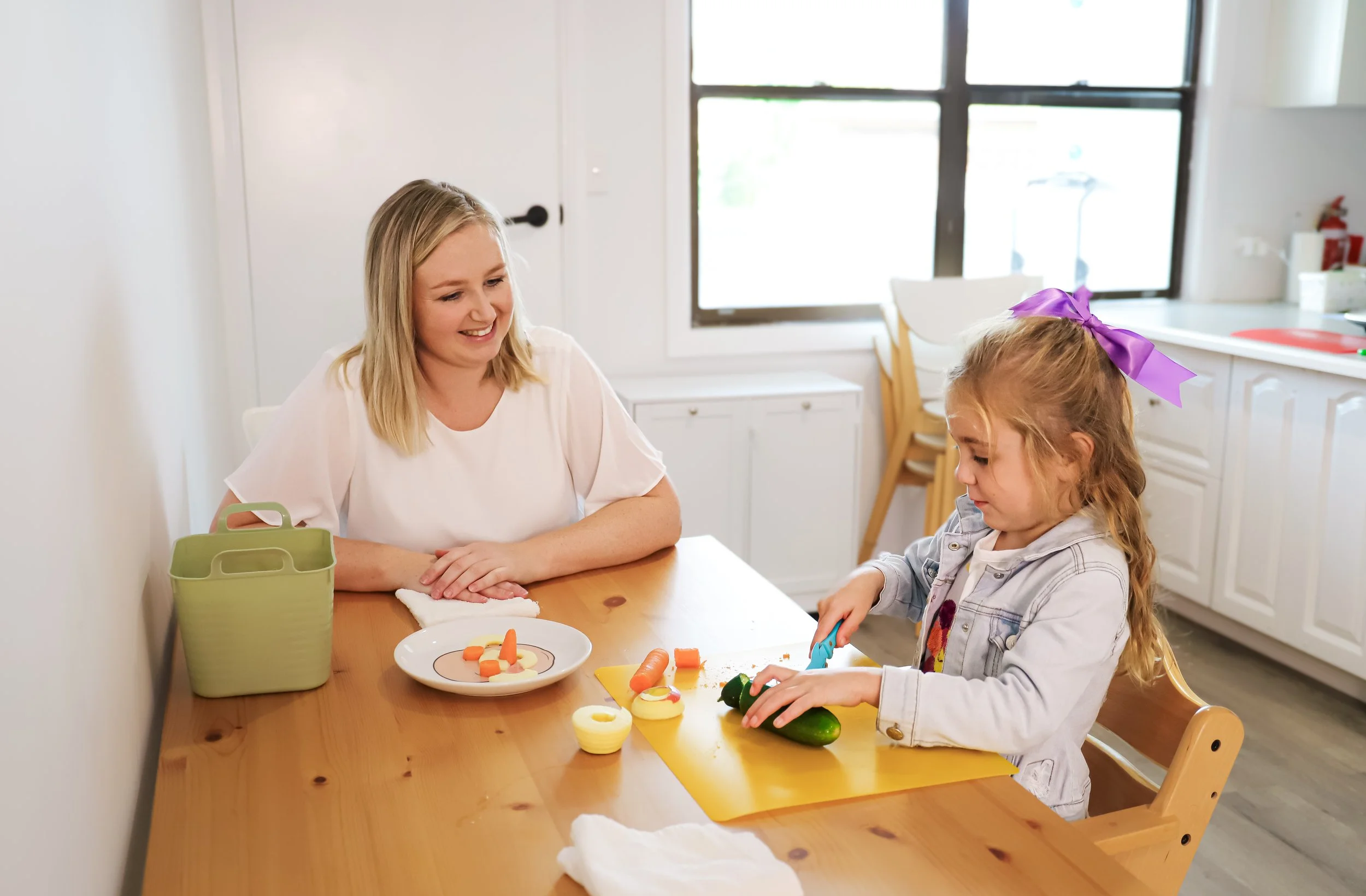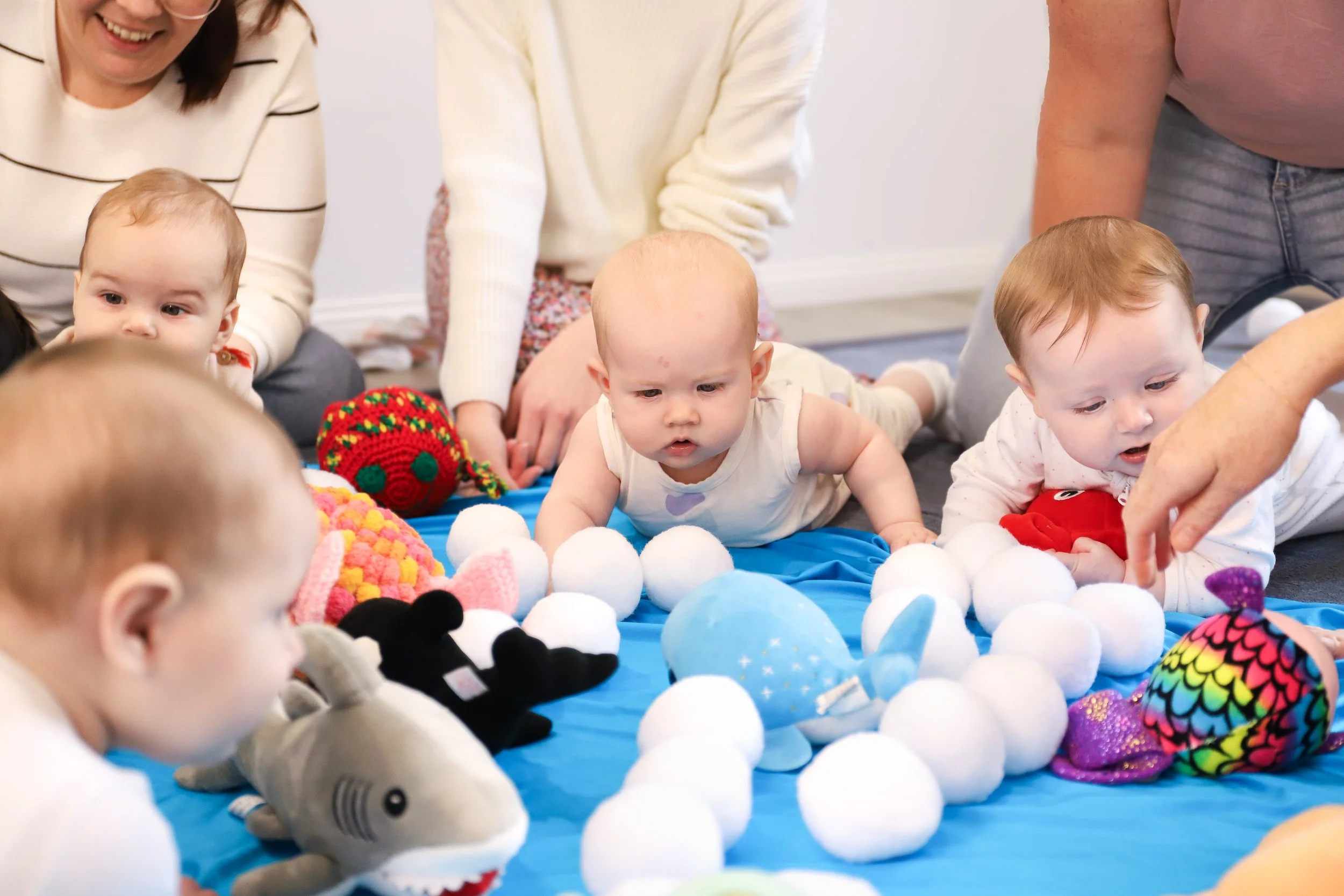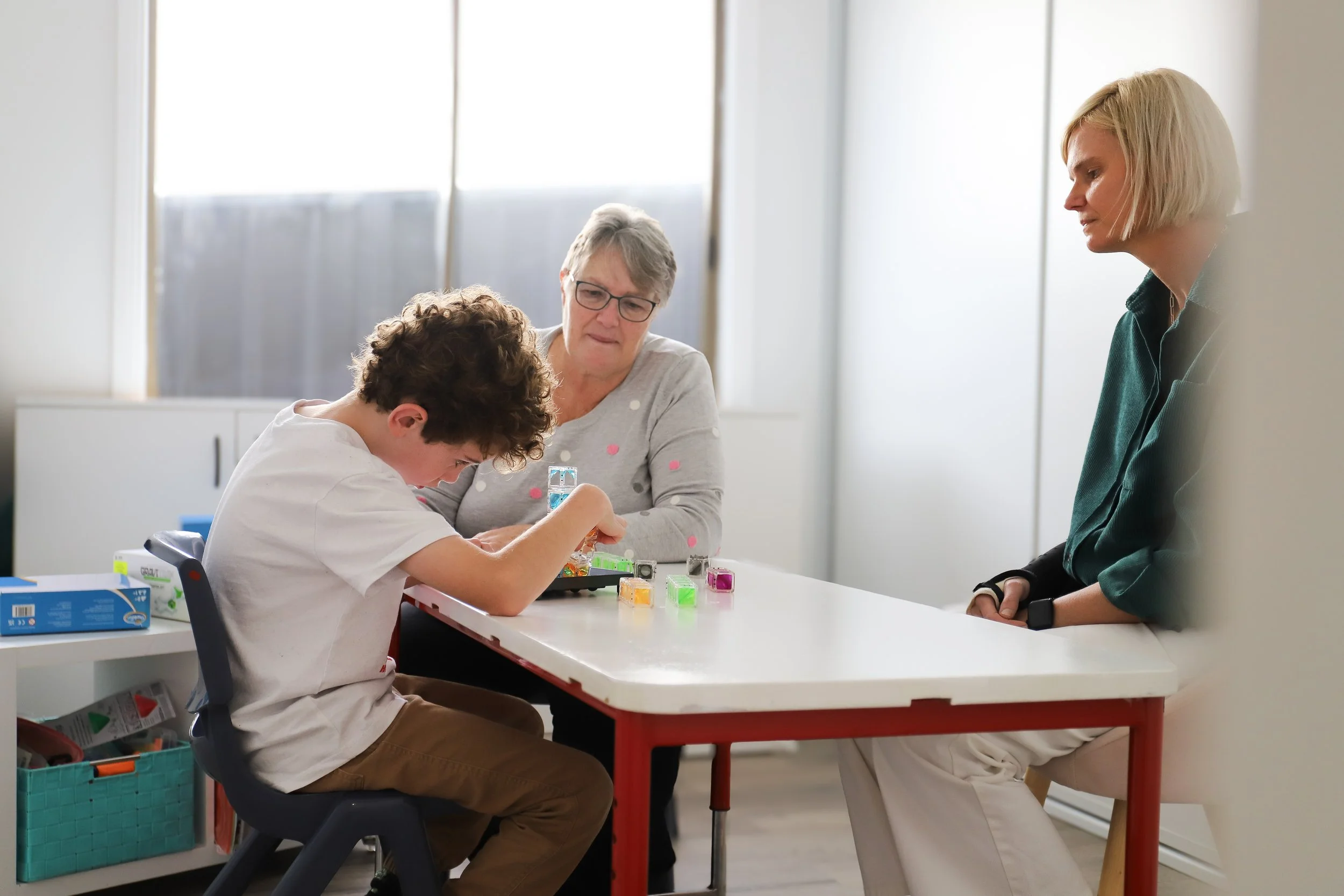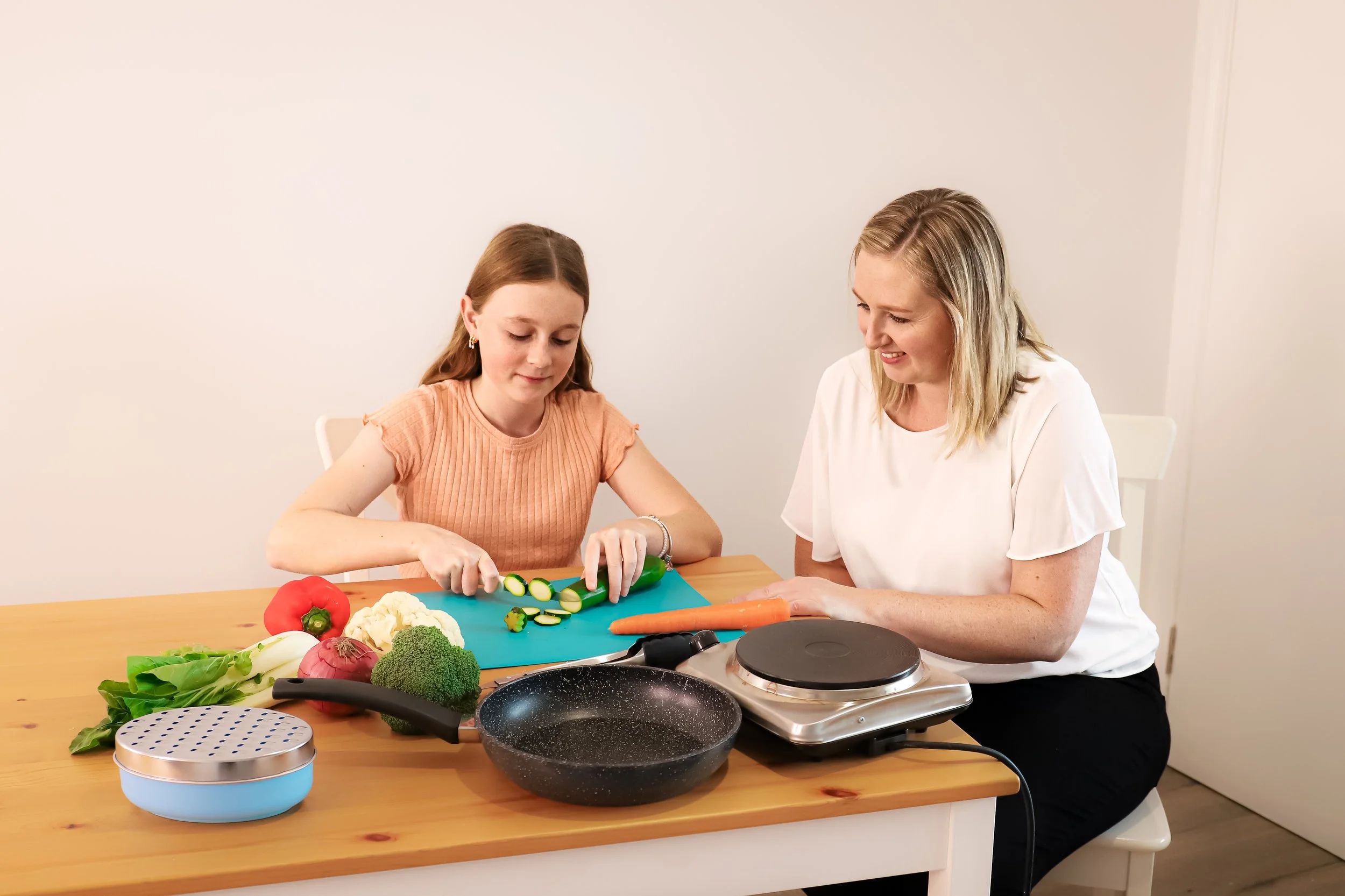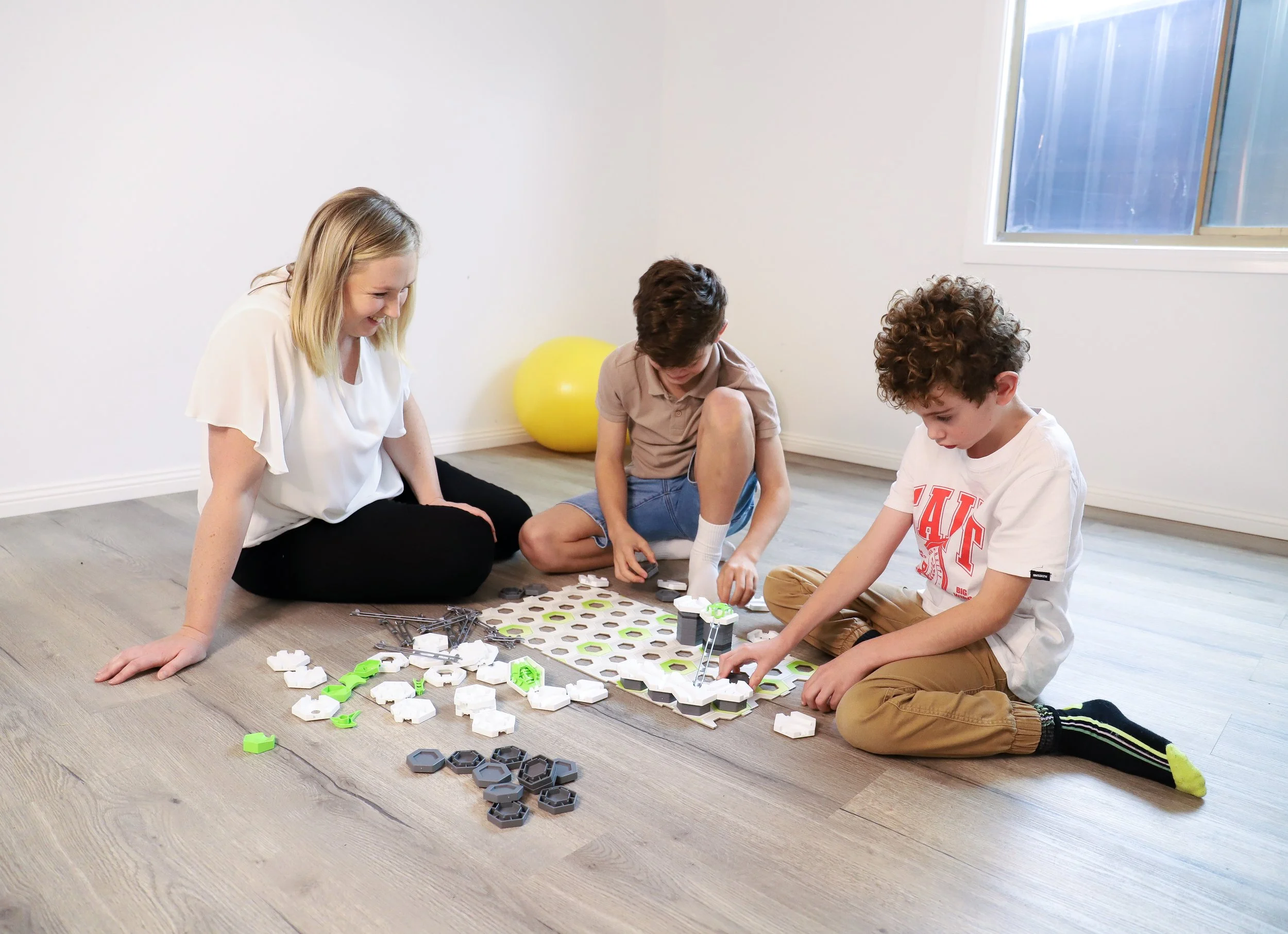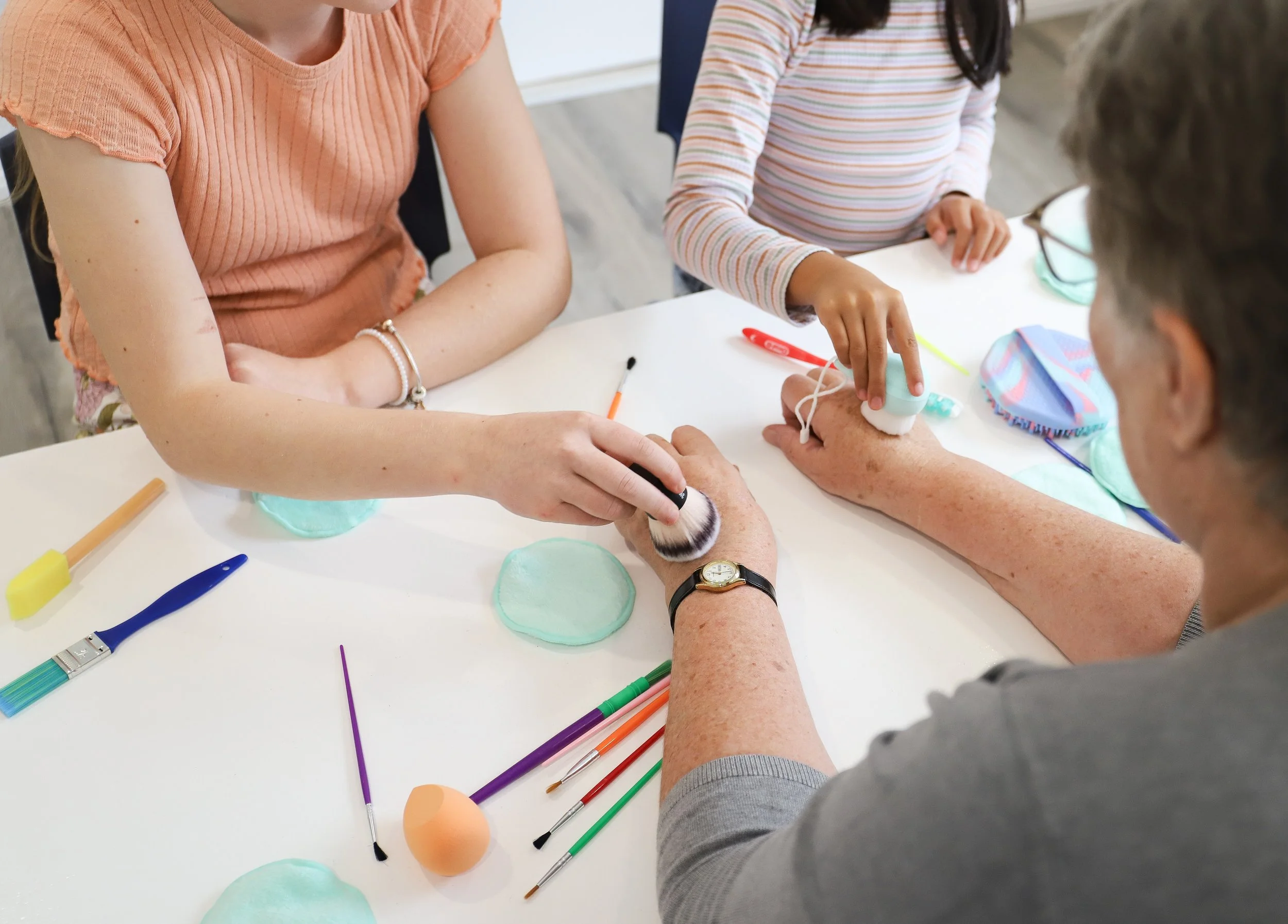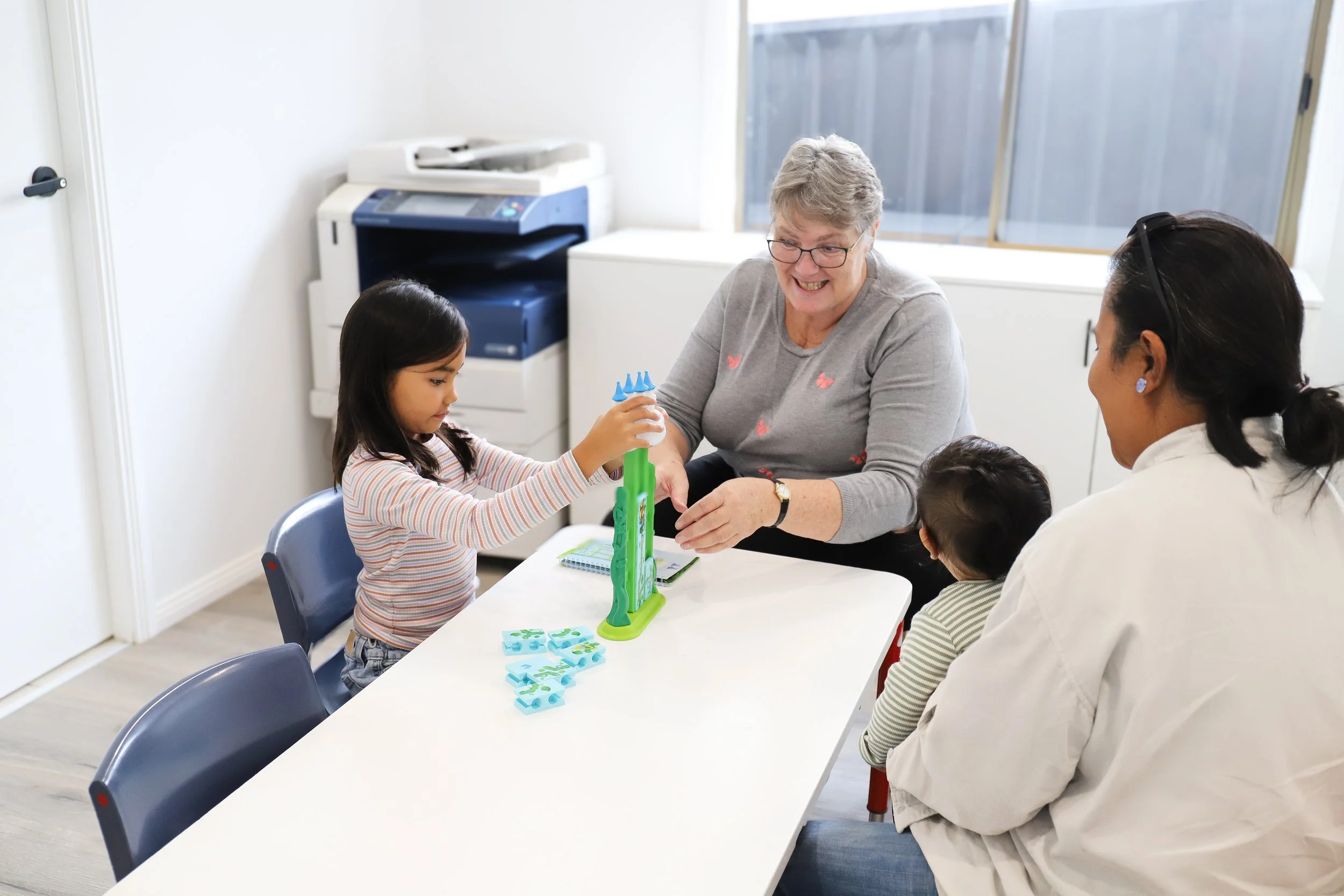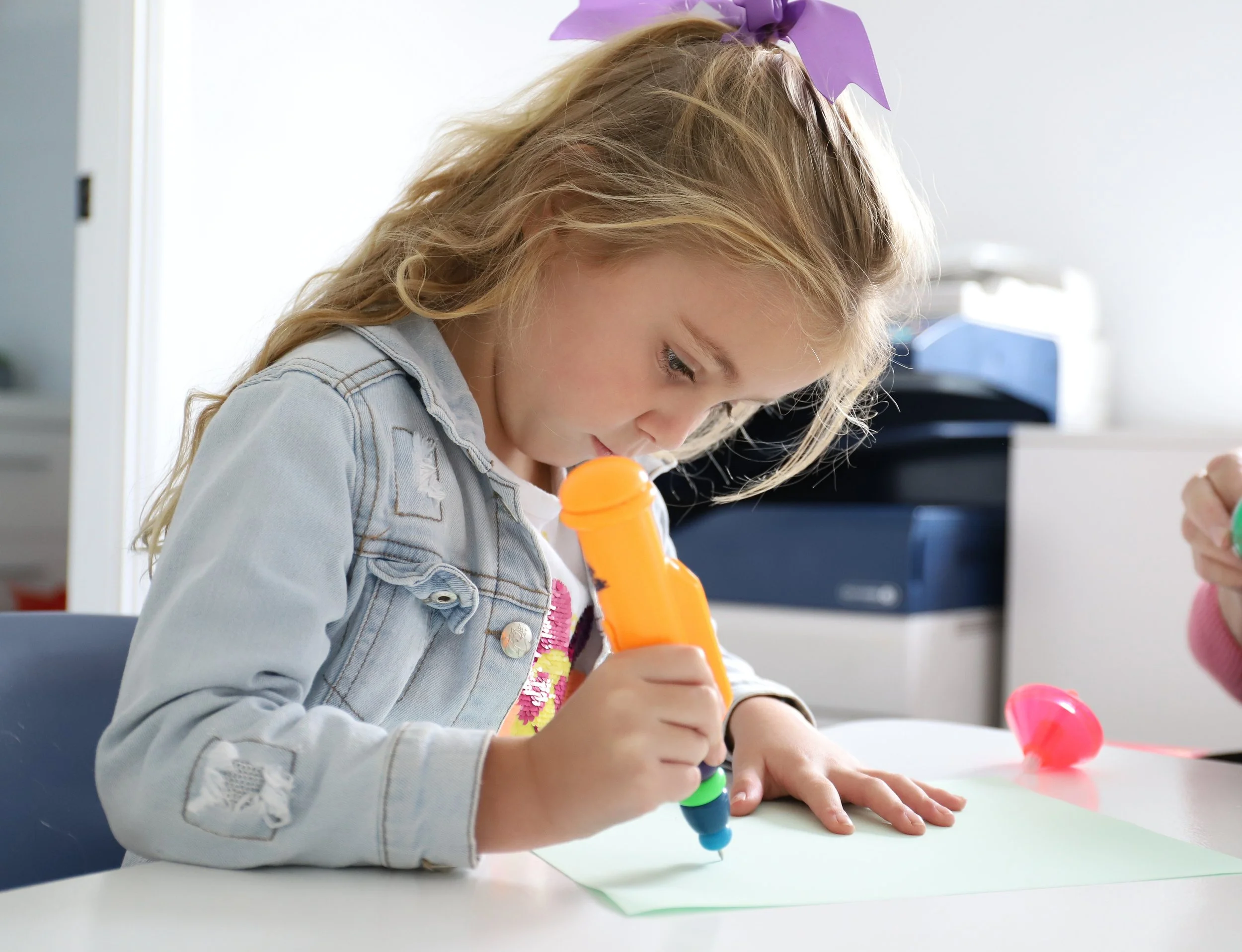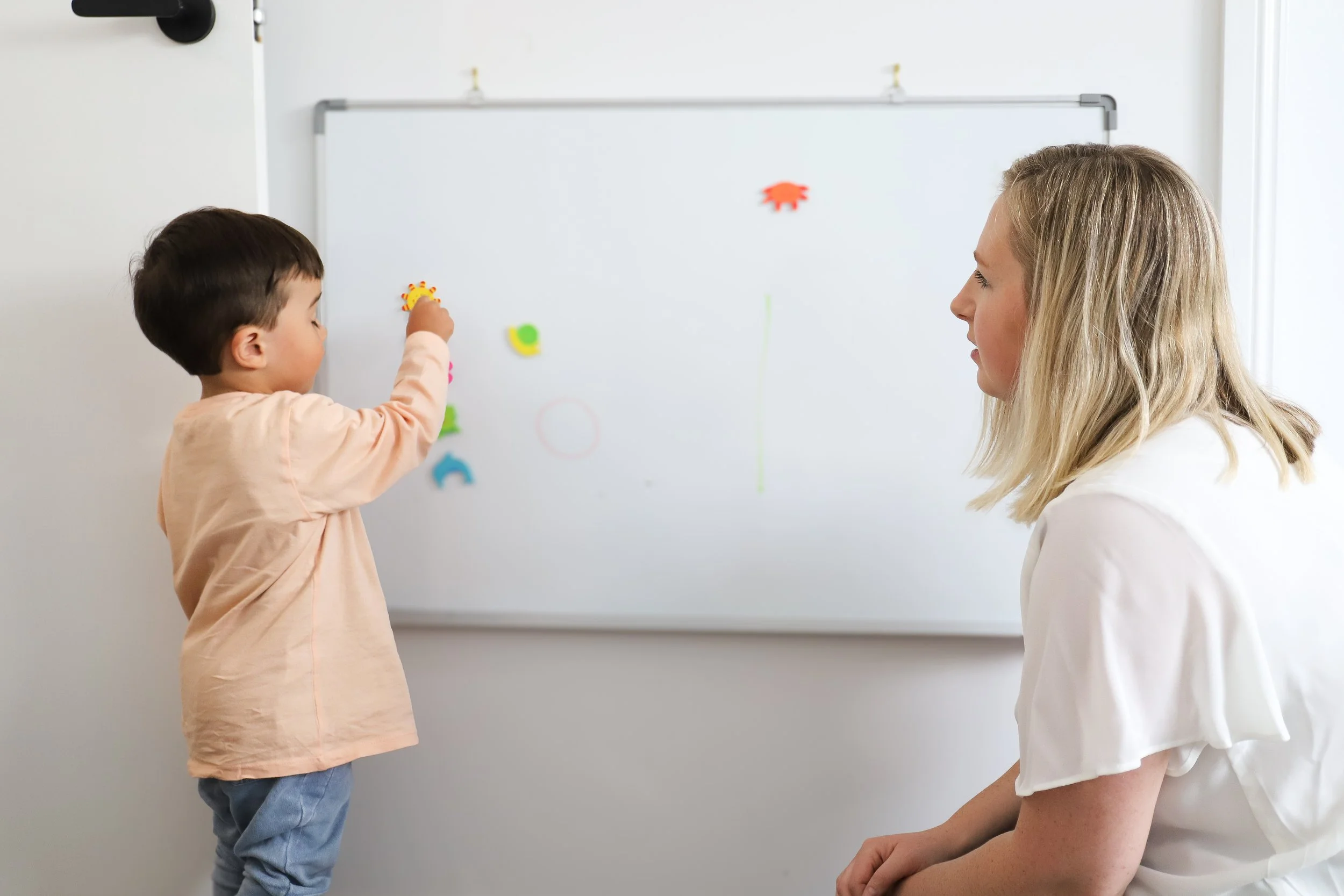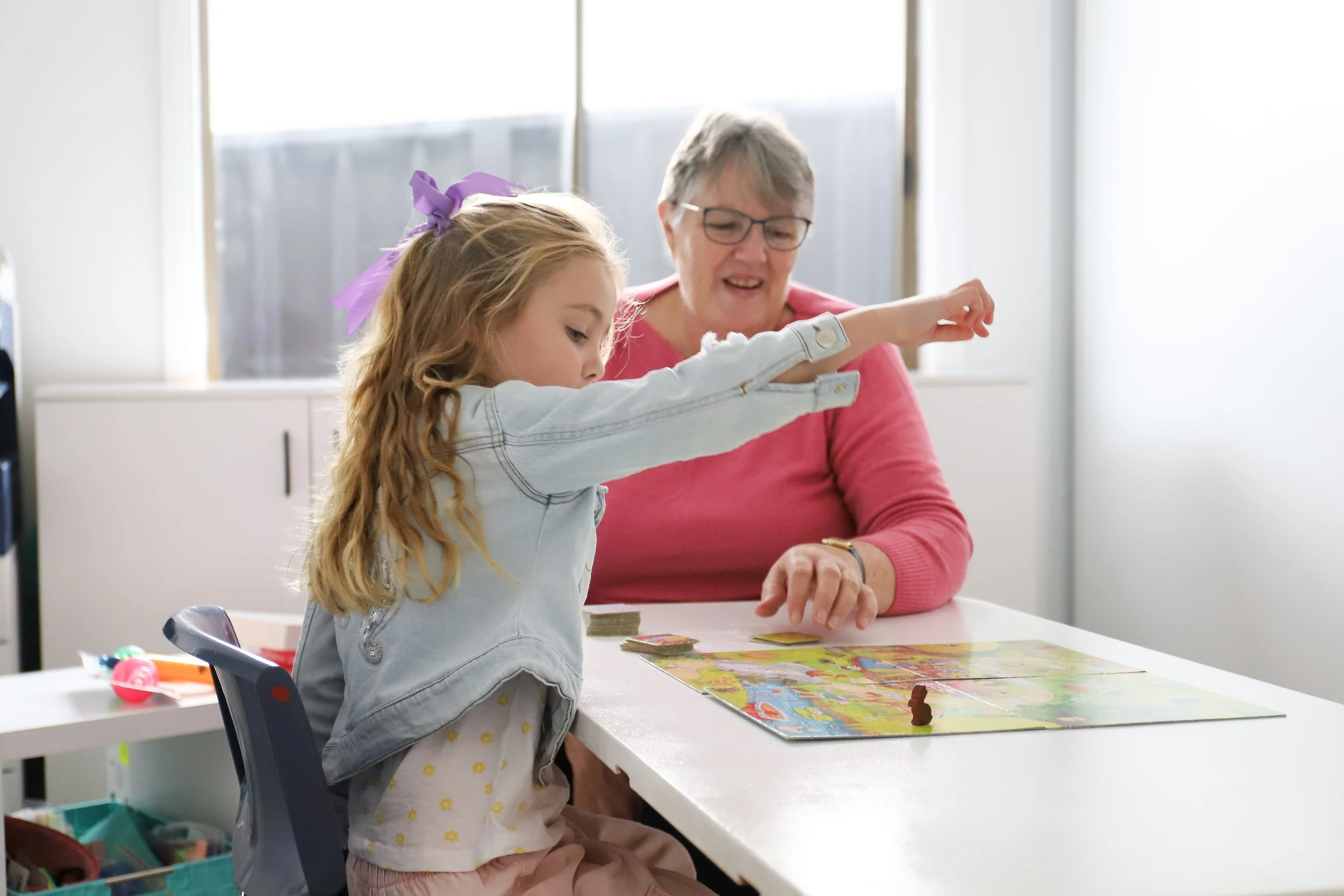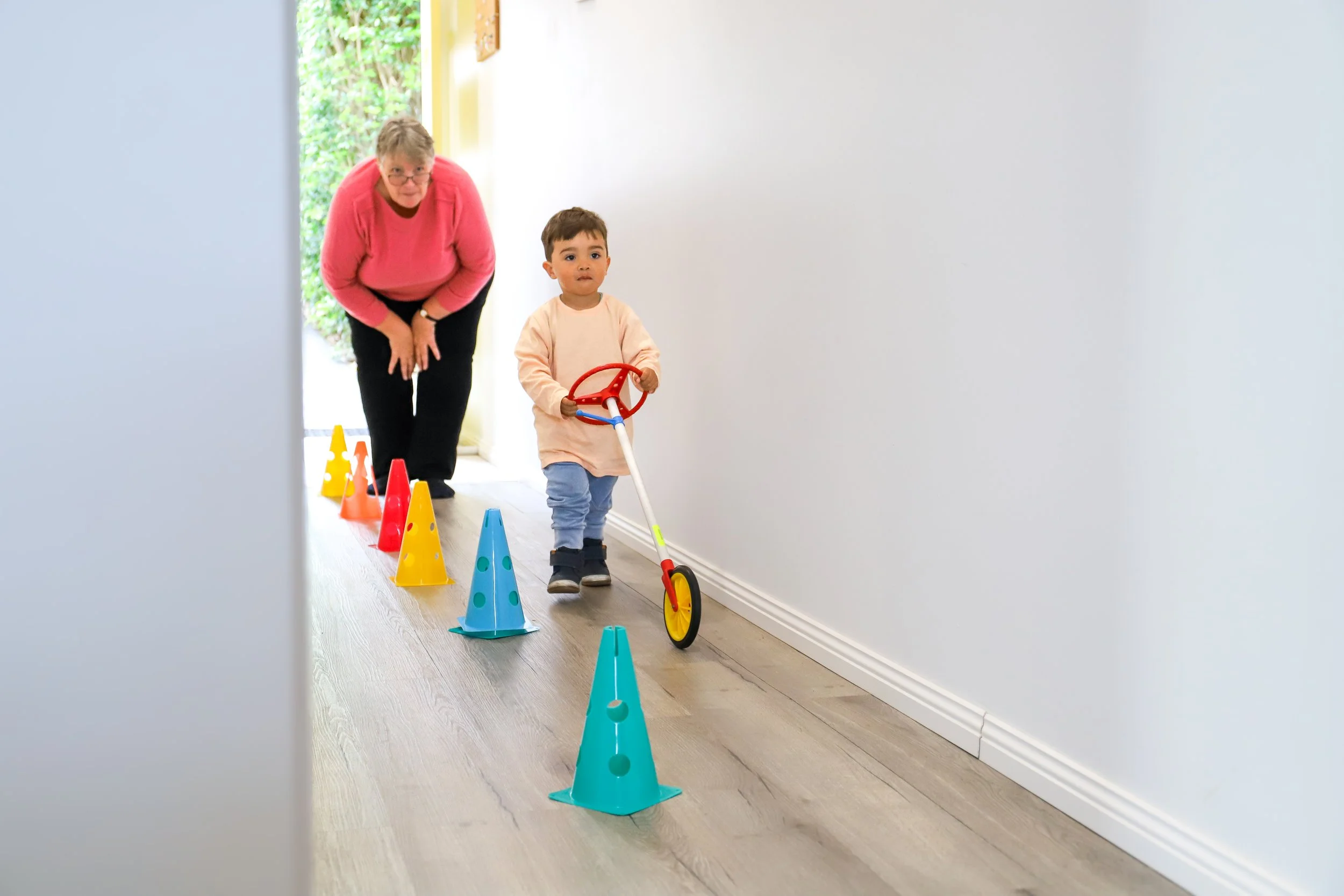Our NDIS and Private Patient Services
Feeding Therapy
-
Occupational Therapy focuses on:
Improving oral motor skills (e.g. chewing, swallowing)
Addressing sensory sensitivities to food textures, smells, or tastes
Developing self-feeding skills (e.g. utensil use, cup drinking)
Creating positive mealtime routines and reducing mealtime anxiety
Dietetic support includes:
Assessing nutritional intake and growth
Developing personalised meal plans
Providing guidance on food allergies and intolerances
Ensuring safe and adequate nutritional intake for development
Together, the OT and Dietitian create an individualised feeding plan tailored to the child’s needs, promoting safe eating habits, a positive relationship with food, and healthy growth.
Sensory Diets & Sensory-Motor Integration
-
We use a dedicated sensory space where children can engage in activities designed to build sensory processing skills in a calm, structured way. These experiences are carefully integrated into daily routines, helping children generalise their skills across home, school, and community settings.
Planning and Executive Functioning
-
Understanding task requirements
Sequencing and prioritising actions
Remembering and following steps
Adjusting and problem-solving
Evaluating progress
Through structured play and guided tasks, we help children improve executive functioning skills, building independence and confidence in both academic and everyday settings.
Daily Living Skills
-
Dressing and grooming
Toileting
Feeding and mealtime skills
Personal hygiene
Managing routines at home and school
We use developmentally appropriate, play-based strategies to teach these skills and promote confidence and autonomy in daily life.
Functional Capacity Assessments (FCA)
-
Areas assessed may include:
Self-care (e.g. dressing, grooming, toileting)
Mobility and transfers
Communication and social participation
Fine and gross motor skills
Sensory processing
Cognitive functioning (e.g. attention, memory, problem-solving)
FCAs help inform therapy goals, funding applications (such as through the NDIS), and support planning for children with additional needs. Caitlin is available to complete these assessments as part of our team.
Social Skills Groups
-
These groups are designed to help children build meaningful relationships, develop emotional regulation strategies, and practise essential daily living skills in real-time social settings.
Relationship Building: Through collaborative games, shared tasks, and group discussions, children learn how to initiate and maintain friendships, read social cues, take turns, and resolve conflicts.
Emotion Regulation in Real Time: Group settings naturally present opportunities for emotional ups and downs. Our therapists guide children through recognising their feelings, practising calming strategies, and navigating challenging interactions in the moment.
Planning, Meal Preparation, and Shared Mealtimes:Sessions often include cooking and shared eating experiences. Children plan and prepare simple meals together, follow multi-step instructions, and enjoy the social aspect of eating with peers.
By combining the expertise of an Occupational Therapist and a Dietitian, our groups integrate developmental goals across social, emotional, and functional domains. Families often report improved confidence, greater self-awareness, and more successful peer interactions. We create a safe and inclusive space where children feel supported to grow, connect, and succeed.
Interoception
-
We offer group programs focused on developing interoceptive awareness. These groups give children opportunities to explore their internal signals and learn from peers in a supportive environment. Michele is trained in Theraplay © techniques that build interoception through engaging, hands-on activities.
Visual Perception and Learning
-
Visual discrimination (identifying differences between objects)
Visual memory (recalling visual information)
Visual spatial relations (understanding object positions)
Visual sequential memory (remembering visual sequences)
Visual closure (identifying objects from incomplete information)
Our therapy supports children in developing these skills through fun, targeted activities that lay the foundation for academic success and daily functioning.
School Readiness
-
Fine motor skills (e.g. pencil grip, cutting)
Executive functioning (planning, organisation)
Daily living skills (e.g. toileting, dressing)
Emotional regulation and self-control
Social skills and communication
Memory and attention
We offer tailored support to ensure each child is equipped for a successful school transition.
Fine Motor Skills
-
Holding a pencil and writing
Using scissors
Tying shoelaces
Buttoning clothes
Opening lunch boxes
Feeding with a spoon or fork
Occupational therapists support the development of fine motor skills through play-based interventions that strengthen hand muscles, improve coordination, and build dexterity - essential for independence at home, school, and in the community.
Emotional Regulation
-
At our clinic, we use sensory and cognitive-based strategies to help children learn how to regulate their emotions. We encourage parent involvement to support the use of these strategies in everyday life. With consistent practice, emotional regulation can become a natural and accessible skill.
Memory and Information Processing
-
Recognise letters and symbols
Follow instructions
Complete patterns
Manage routines
Michele has a special interest in supporting children with memory and visual perceptual challenges. Having navigated learning difficulties herself, she brings empathy and expertise to help children discover their strengths and succeed in their learning journey.
Building Independence
-
Planning and preparing meals
Budgeting and money management
Time organisation and task sequencing
We support children and young people in building these skills through practical, meaningful tasks that reflect real-life responsibilities.

